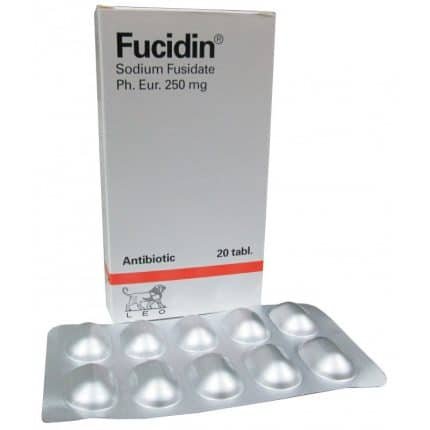Sodium fusidate is an antibiotic medication used to treat a wide range of bacterial infections. It belongs to a class of drugs called fusidic acid derivatives, and it works by preventing the growth and reproduction of bacteria. It is typically used to treat skin and soft tissue infections, but it can also be used to treat other types of bacterial infections such as respiratory tract infections, bone and joint infections, and urinary tract infections.
Benefits:
- Sodium fusidate can effectively treat a wide range of bacterial infections, including skin and soft tissue infections, respiratory tract infections, bone and joint infections, and urinary tract infections.
- It is considered to be a broad-spectrum antibiotic, meaning it can be used to treat a variety of different types of bacterial infections.
- It is also considered to be a safe and well-tolerated medication.
Side Effects:
- Common side effects include diarrhea, stomach cramps, and nausea.
- Some people may experience allergic reactions such as hives, difficulty breathing, and swelling of the face, lips, tongue, or throat.
- It may also cause changes in blood pressure, which can lead to heart problems, muscle weakness, or seizures.
- It may also cause changes in electrolyte levels, which can lead to heart problems, muscle weakness, or seizures.
- It may also cause changes in liver function.
- It may also cause an overgrowth of bacteria, leading to fungal or yeast infections.
- Long-term use of antibiotics like sodium fusidate can lead to antibiotic resistance, which means that the bacteria will no longer be responsive to the medication and will continue to multiply and cause an infection. It is important to follow the dosage and usage instructions provided by a healthcare professional to avoid any potential side effects.






